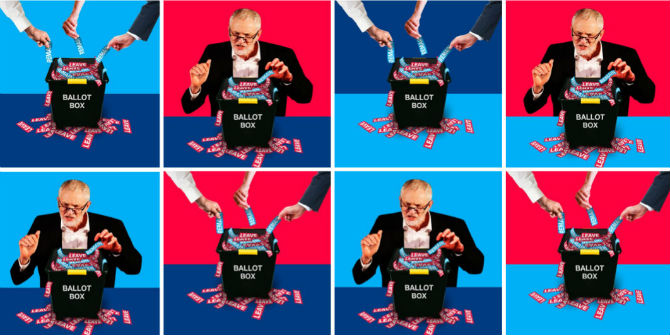Educating 16 and 17-year-olds about voting and citizenship takes time, says Andrew Mycock, and the Scottish referendum was a divisive introduction to politics for some of them. Nor is it mere coincidence that 18 is the voting age in 27 of the 28 EU member states.
The forthcoming referendum on the UK’s membership of the European Union has re-energised debates about lowering the voting age, offering supporters and opponents another opportunity to expound well-established arguments on ‘votes at 16’. As someone who sought to tread the line between outright rejection and support for the proposition, debates about potential voting age reform have proven depressingly familiar and repetitive. As Richard Berry has rightly noted, we need a more intelligent and informed debate, particularly as it looked likely that a universal lowering of the voting age is likely soon.
It is evident from my work with young people across the UK that a sizeable number of 16- and 17 year-olds are sufficiently political literate, engaged and mature to be granted requisite political rights. However, many more do not feel they are ready to vote at 16. The extension of the franchise to 16- and 17 year-olds in the 2014 Scottish independence referendum strengthened the case for voting age reform, with many temporarily-enfranchised Scots exercising their democratic rights in an engaged, informed and independently-minded manner. Research indicates that the referendum in Scotland had a positive impact on youth political socialisation in Scotland, meaning young Scots are – for now at least – more likely to participate in future elections than their disenfranchised peers in England.
However the experiences of 16 and 17 year-old voters in Scotland raise profound questions about the suitability of referenda as a driver or ‘test bed’ for voting age reform. The Scottish independence referendum was often febrile and divisive, schooling younger citizens in a form of binary politics that was deeply adversarial, reductive, and contentious. The legacy of the referendum is that many young Scots now associate democratic engagement with the bipolarity of Scottish politics. It is likely that the EU referendum will prove equally – and maybe more – divisive.

Questions must also be raised regarding the positive impact of the independence referendum on youth political literacy in Scotland. Discussion of the referendum in schools was bespoke and variable in terms of quality and quantity, this reflecting the lack of a universal framework of political education in Scottish schools. Although Citizenship is a statutory element of the National Curriculum in England, even proponents of ‘votes at 16’ recognise that political education is not delivered consistently by appropriately-trained teachers. Recent reforms to the Citizenship have diminished political education in English schools and provision across the rest of the UK is similarly patchy. It is highly unlikely that there is sufficient time to redress this situation and ensure that all potential young voters are afforded appropriate opportunities learn about and appreciate the complexities of EU membership.
The inclusion of 16 and 17 year-olds in referenda in the UK appears to be encouraging its universal introduction by stealth while sidestepping the urgent need to give appropriate consideration of how the broader economic and social rights and responsibilities of youth and adult citizenship are realised and correlated. The experience in Scotland is instructive. While the participation of young people in the independence referendum is lauded, politicians have continued to push the age of responsibility upwards. As Michael White noted in the Guardian recently, the Scottish government has legislated to ensure that every child in Scotland has a state-appointed guardian up to the age of 18 and is considering pushing the age to purchase alcohol to 21.
Richard Berry rightly notes we should not use the age of buying a pint as a guide for enfranchisement. However, if the argument for ‘votes at 16’ is to create a more inclusive version of politics, the potential for creating a ‘two-tier’ electoral franchise whereby under-18 year-old voters are treated as ‘second class’ citizens with fewer rights appears somewhat counter-intuitive. While an absolute synchronisation is unlikely, we need to consider the question of voting age within a broader debate about the age-related rights and responsibilities of citizenship.
The voting age in 27 out of the 28 EU member states – Austria is the exception – remains at 18. This is not an accidental coincidence, and tells us much about how youth and adult citizenship is understood across Europe. Adult public opinion on the issue suggests a majority still oppose lowing the voting age. Introduction of ‘votes at 16’ for the EU referendum will not provide that opportunity and could actually diminish youth political participation in the long-term. There is a need to take stock and undertake an evidence-led and comprehensive approach to introducing voting age reform that assesses its potential implications in full.
Dr Andrew Mycock is a Reader in Politics at the University of Huddersfield and a Fellow of the Higher Education Authority. He is a co-founder of the Academy for British and Irish Studies and co-convenor of the Politics Studies Association Britishness Specialist Group.







